Papa Menes was already up having coffee when he got to the house, standing on the porch watching the sun dance on the incoming tide. He asked “Well?” and began his briefing.
The Cleveland police had gotten a break. A girl who worked in the building opposite had noticed the car driven by Holland’s killer because it was in a slot normally occupied by the manager in the neighboring office and the plates contained three consecutive zeroes. When they checked out every available combination, the only car whose make and color coincided was a rental job.
Crime paid off because the agency had been held up four times the past year and had installed a hidden camera that photographed everyone at the counter and the person who had rented the car was now on film. He was tall, wore a blue raincoat over a dark suit, a gray hat, carried a small suitcase still tagged with an airline baggage check, had glasses, a thin mustache and cut marks on his chin from a hurried shave. The name on his driver’s license was Charles Hall from Elizabeth, New Jersey. He had paid by credit card. The Cleveland police were interrogating all the airline personnel looking for an identification. Copies of the photo were being sent to departments in all the other cities but not being released to the news media. Papa Menes would have his own copy in the mail tomorrow. The old man nodded and finished his coffee.
Gill Burke handed the photo back to Captain Long and said, “Mister Anybody. The glasses and mustache could be phony and who doesn’t cut themselves shaving? The marks would be gone by now.”
“Encouragement is great,” Bill Long said, “Just what I need.”
“How about the credit card and address?”
“Phony, what else? The address was a garage that never heard of the guy and the card was only used once. We’re checking up on the reference he used when he applied for credit but not hoping for much luck.”
“That took a lot of preparation, buddy.”
“Nothing more than you’d expect from a pro, Gill.”
“A little more,” Burke said. “The usual contract boys don’t like any kind of paperwork, you know that.”
“Yeah, so this smells a little more businesslike. Either a high-price deal or an organizational endeavor. At least we got a toehold now. Somebody’s going to recognize that photo sooner or later and we’ll get our first break. The lab’s got their specialists working on that negative and if there’s anything that can be brought out, they’ll do it.”
“Anything from the air terminal?”
“One big blank, that’s what.” He looked at Gill’s face and scowled. “What’s so damn funny?”
“The whole bit could be a decoy. He could have even known about that camera. If he was a good pro he could have switched clothes and slapped on a disguise in the men’s room and taken it from there.”
“Maybe, but that camera had only been there a week.”
“Then you got your toehold.”
“We have a better angle, or haven’t you talked to the D.A. yet?”
“He doesn’t offer me anything at all.”
“Stanley Holland,” Bill Long told him, “was a very well-kept secret. Now that we know who he was we’re putting the picture together. His activities were known only to a few of the higher-ups in the syndicate and whatever bunch got inside their little plan had to be an extremely well-financed, well-informed group. The L.A. police are really hammering at it and we ought to be getting a break any time.”
“Good luck,” Gill said.
“Yeah,” Long muttered. He put the picture back in his pocket and held a match to his cigarette. “Now what have you got?”
“Nothing concrete yet. Maybe by Wednesday I’ll toss something out at the meeting.”
“You’d better. There’s a little shit-assed columnist who’s got a mad-on at everybody in uniform who smelled out your participation in this thing?”
“Meyer Davis?”
“The same.”
Gill chuckled in his throat. “He didn’t like that boot in the tail I gave him for the job he did on Joyce Carroll. He nearly loused up my whole case.”
“Well, he’s sniffing around and he’s got that whole pinko paper behind him.”
“Another kick in the behind can straighten him out.”
“You lay off that shit.”
“Sure, boss.”
“Quit that shit too.”
“Yes, sir.”
“Come on, Gill.”
Burke laughed at him. “Okay. See you Wednesday.”
Calling Willie Armstrong “Junior” was as diminutive as calling Mister Ruth “Babe.” He was a span over six feet, weighed two hundred thirty pounds and could talk like the college graduate which he was or drop into the dialect of a Georgia cotton farmer which his father had been. His teeth were a dazzling white in the blackness of his face, framed in a huge smile as he greeted Gill Burke at the door of his apartment on Lenox Avenue in Harlem.
“You sure got your nerve coming up here, white boy,” he said.
Gill gripped his hand and squeezed just as hard. “None of you cats ever give anybody trouble in the morning. You’re all too happy.”
“We’re tigers, man.”
“Only when the sun goes down. How’s Cammie?”
“Great, man. She started making the grits and red eye gravy soon as you called.”
“I wanted sausages and pancakes, Junior.”
“All on one plate, buddy. Just like the old days. Remember Looney Mooney, that cook we had in basic training?”
“Old take-care-of-the-troops Looney Mooney,” Gill said.
“Right on, friend. Cammie’s cakes makes his look sad, like sad.”
“Then let’s eat.”
Over breakfast the three of them recounted the days from when they had seen so much hell together, through their occasional reunions to the present. Junior Armstrong had opened a neighborhood discount house, survived the economic trends and emerged as a powerful spokesman for the black community. His heavy hand and influential contacts had kept his area cool and not much went on he didn’t know about.
When they finished, Cammie, his pretty little wife who had the only voice he actually feared, sent them into the living room to talk while she cleaned up, setting the coffeepot on the table between them.
Junior offered Gill a cigarette from his pack and snapped the lighter on. “You been hurting since the bust?”
Burke blew a stream of smoke toward the ceiling. “Not really.”
“Don’t fake me out, buddy.”
“So I hurt for a little while,” Gill said. A touch of humor showed in his eyes and he added, “I’m back again.”
Junior nodded, showing no surprise at all. He listened while Gill sketched in the details and nodded again. “You need some help?”
“A little.”
“Say it, man.”
“A young guy named Henry Campbell who’d be about twenty-five years old. His last place was a furnished room down on Bleecker Street, but he didn’t leave any forwarding address.”
“How long ago?”
“Couple of years.”
“That’s a lot of time.”
“I know, but there aren’t many places he can go, either.”
“Yeah, I know. Being black means being located. You only got one ghetto or another to hole up in. Suppose he left the city?”
“Doubtful. He was born here. Parents dead, two brothers in the Post Office Department who haven’t heard from him in years, but he’s got to have friends.”
“How far did you get?” Junior asked him.
“If he’s working, he’s not using his social security number. He isn’t listed on welfare or unemployment books. He has no known skills, but likes to work around cars. The last time I spoke to him he parked cars in a lot owned by the syndicate.”
Junior took a drag on his cigarette and tapped the ash off into the tray. “That would be the witness who finked out on you that time.”
Читать дальше
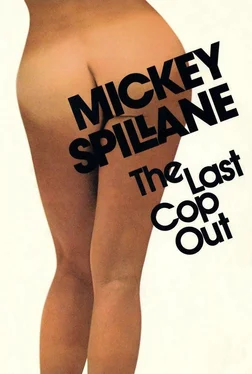
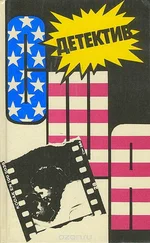

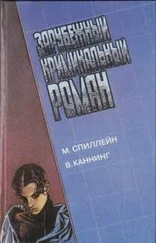
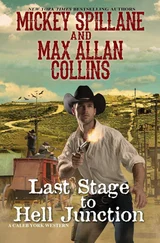

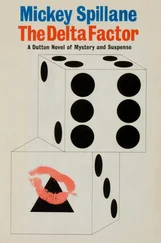
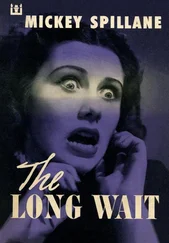
![Микки Спиллейн - Death of the Too-Cute Prostitute [= Man Alone]](/books/437201/mikki-spillejn-death-of-the-too-thumb.webp)